new to the gluten free journey?
new to the gluten free journey?


Contents
Toggle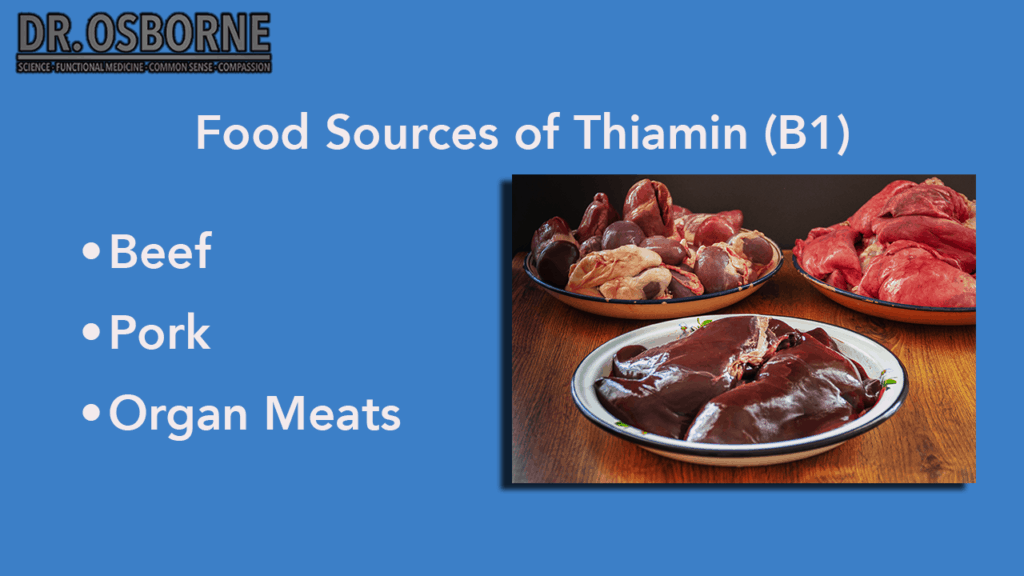 Finding sources of thiamine in food can be quite easy; however, special attention must be given to how food is made or processed. Animal meat such as beef and pork, and specifically meat from the organs of animals, along with almonds, peas, and spinach are all great options for obtaining this vitamin. But, overcooking these foods to the point of burning them, frying them (including air frying), or setting them under a radiation light, as seen in many restaurants, can destroy the thiamine.
Additionally, processing these foods with sulfites or an alkalinizing agent can also ruin this nutrient. For example, many dried vegetables and fruits are processed using sulfites. These neutralize the thiamine and therefore provide very few of the nutrients one assumes to be intaking.
Finding sources of thiamine in food can be quite easy; however, special attention must be given to how food is made or processed. Animal meat such as beef and pork, and specifically meat from the organs of animals, along with almonds, peas, and spinach are all great options for obtaining this vitamin. But, overcooking these foods to the point of burning them, frying them (including air frying), or setting them under a radiation light, as seen in many restaurants, can destroy the thiamine.
Additionally, processing these foods with sulfites or an alkalinizing agent can also ruin this nutrient. For example, many dried vegetables and fruits are processed using sulfites. These neutralize the thiamine and therefore provide very few of the nutrients one assumes to be intaking.
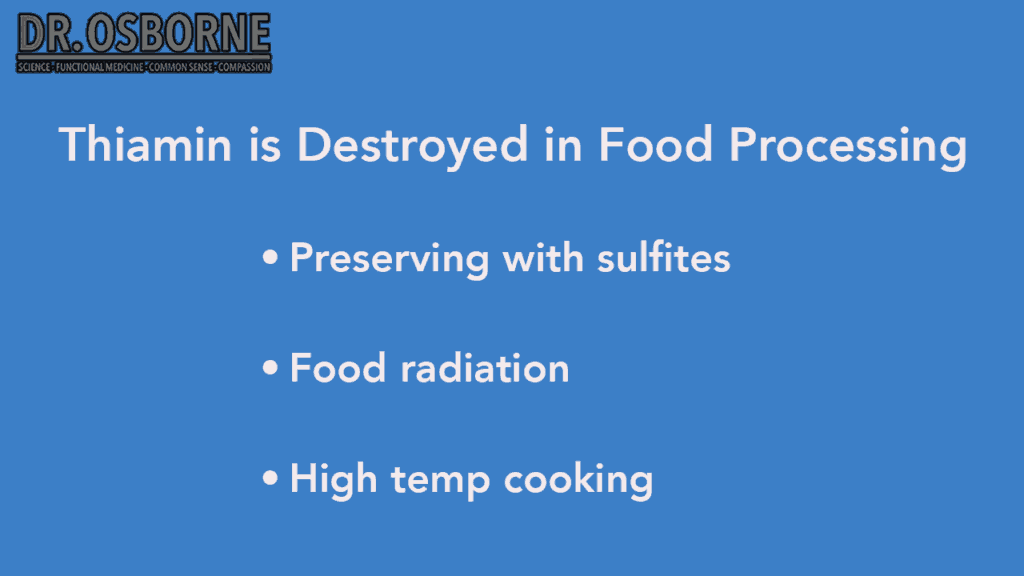
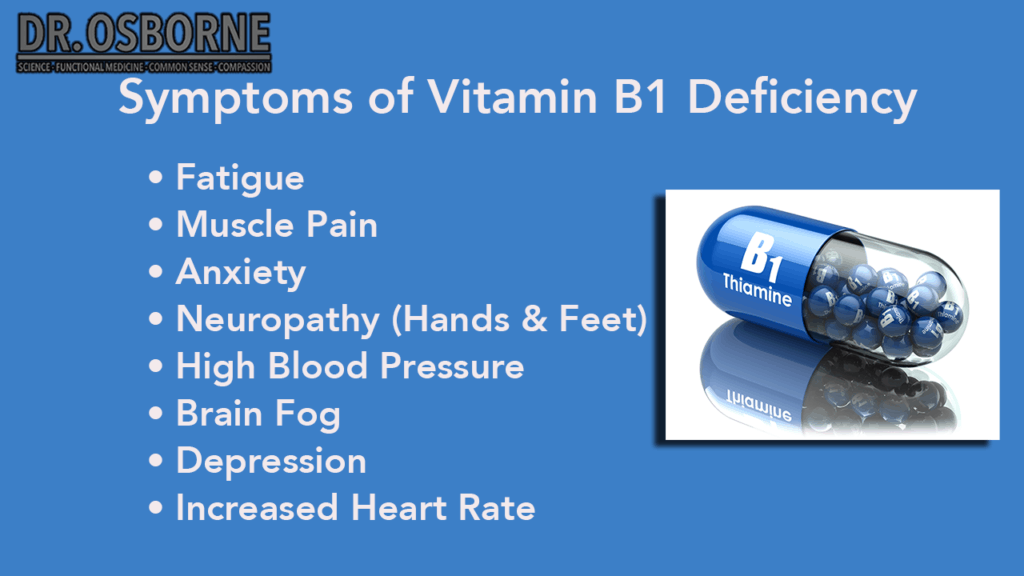 Symptoms of a thiamine deficiency are far-reaching and may manifest in several different ways in the body. These could be in the form of depression, anxiety, muscle pain, neuropathy, epileptic seizures, and fatigue.
Even more concerning, a deficiency can cause high blood pressure, an elevated heart rate, chest pains, and even congestive heart failure, which also results in edema. A Vitamin B1 deficiency is often referred to as beriberi and is categorized as either wet or dry. Wet beriberi is a form of deficiency which affects the heart, while dry beriberi affects the nervous system.
Symptoms of a thiamine deficiency are far-reaching and may manifest in several different ways in the body. These could be in the form of depression, anxiety, muscle pain, neuropathy, epileptic seizures, and fatigue.
Even more concerning, a deficiency can cause high blood pressure, an elevated heart rate, chest pains, and even congestive heart failure, which also results in edema. A Vitamin B1 deficiency is often referred to as beriberi and is categorized as either wet or dry. Wet beriberi is a form of deficiency which affects the heart, while dry beriberi affects the nervous system.
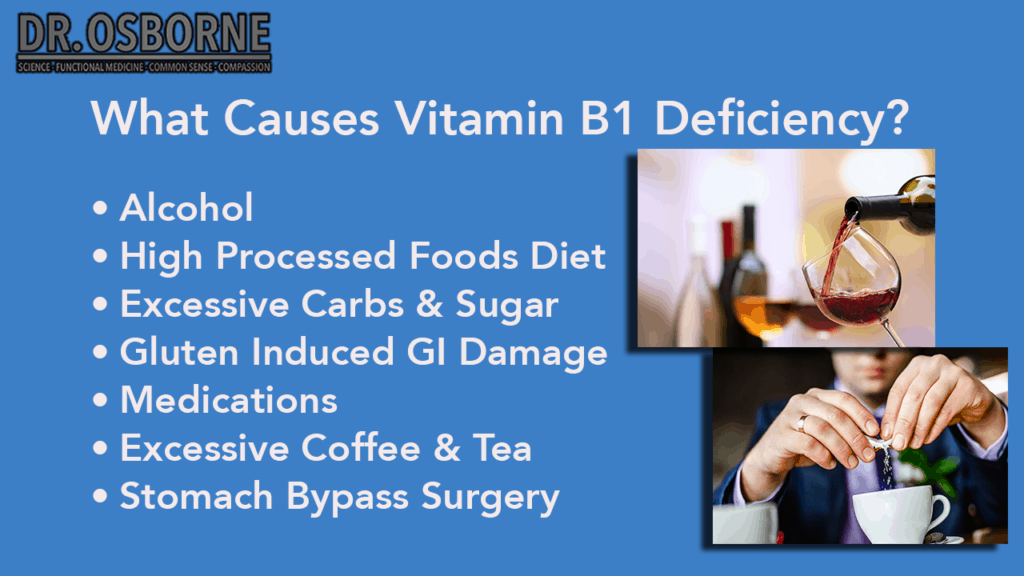 Apart from not ingesting enough Vitamin B1, there are actually several causes of deficiency. These include:
Apart from not ingesting enough Vitamin B1, there are actually several causes of deficiency. These include:
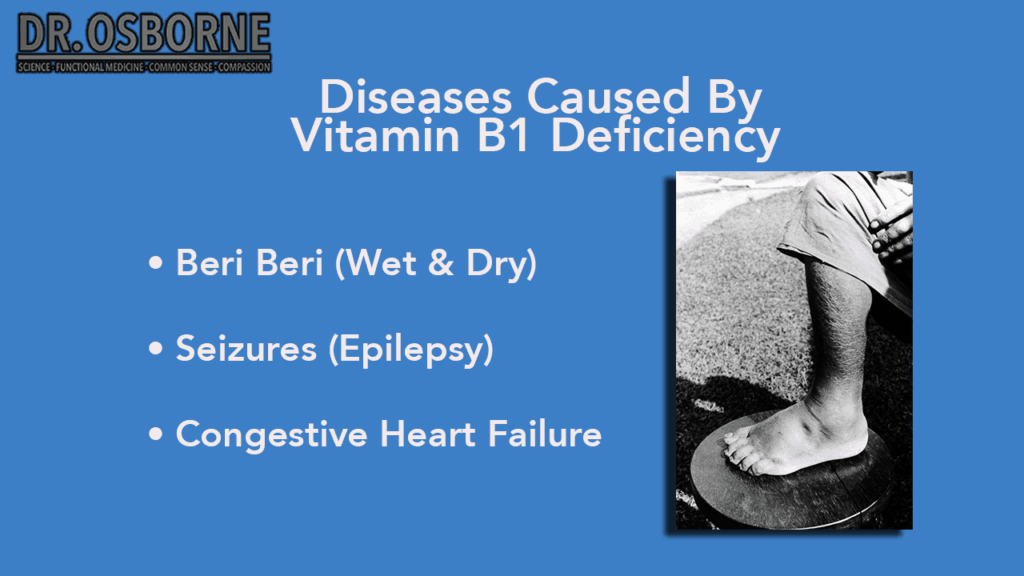
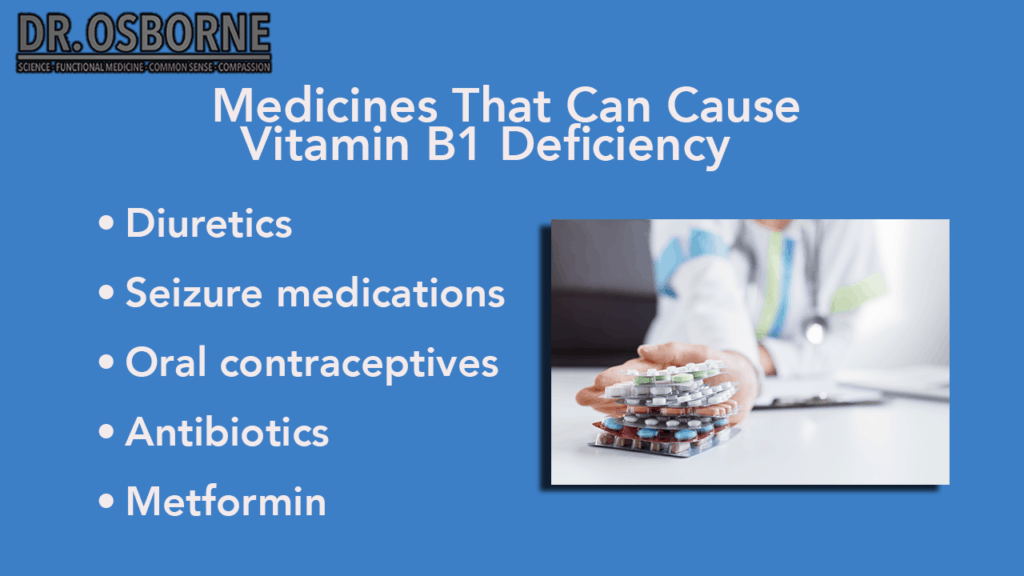 Along with the causes above, there are several medications that can cause a Vitamin B1 deficiency. These medications include:
Along with the causes above, there are several medications that can cause a Vitamin B1 deficiency. These medications include:
 When the body starts to break down, society would have you believe that medication is the only answer for healing. The reality, however, is that most symptoms are a sign that the body is lacking in important vitamins or nutrients.
Medicating the symptom hides the root problem and can lead to further deficiencies and more prescribed medications, establishing a vicious and never-ending cycle. If your body starts to fail, get tested for deficiencies, do research, and discover how changing your diet and implementing natural supplements can improve not only your physical health but your mental health as well.
When the body starts to break down, society would have you believe that medication is the only answer for healing. The reality, however, is that most symptoms are a sign that the body is lacking in important vitamins or nutrients.
Medicating the symptom hides the root problem and can lead to further deficiencies and more prescribed medications, establishing a vicious and never-ending cycle. If your body starts to fail, get tested for deficiencies, do research, and discover how changing your diet and implementing natural supplements can improve not only your physical health but your mental health as well.
Stay up-to-date with the latest articles, tips, recipes and more.

*These statements have not been evaluated by the Food and Drug Administration. This product is not intended to diagnose, treat, cure or prevent any disease.
If you are pregnant, nursing, taking medication, or have a medical condition, consult your physician before using this product.
The entire contents of this website are based upon the opinions of Peter Osborne, unless otherwise noted. Individual articles are based upon the opinions of the respective author, who retains copyright as marked. The information on this website is not intended to replace a one-on-one relationship with a qualified health care professional and is not intended as medical advice. It is intended as a sharing of knowledge and information from the research and experience of Peter Osborne and his community. Peter Osborne encourages you to make your own health care decisions based upon your research and in partnership with a qualified health care professional.